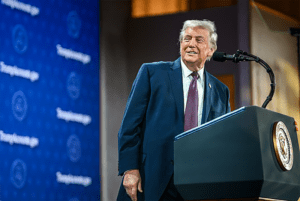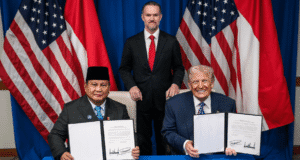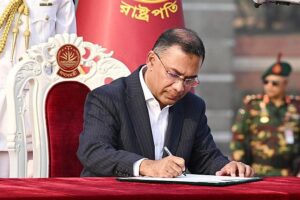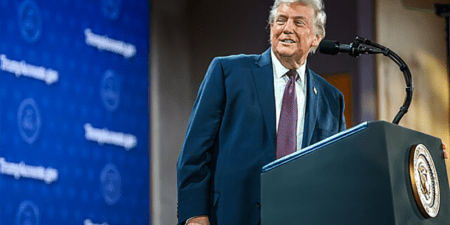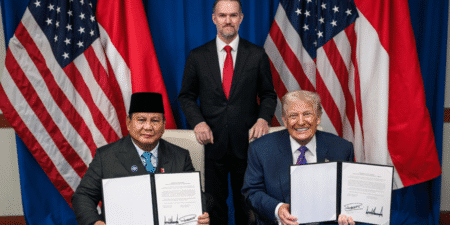
Thailand Forecast: Strategic Investment Goals Amid Global Supply Chain Shifts


WHAT YOU NEED TO KNOW
- The first Cabinet reshuffle under the Pheu Thai-led government has led to an increased focus on the digital wallet scheme, the projection of soft power and the promotion of tourism. However, it has also revealed internal cracks between Pheu Thai factions as power consolidates around former Prime Minister Thaksin Shinawatra and his family.
- The Finance Ministry has revised the 2024 economic growth forecast down to 2.4 percent from 2.8 percent due to slow domestic demand, lower-than-expected exports and diminishing effects from Songkran (Thai New Year) tourism and the Easy E-Receipt campaign. The current drought, attributed to El Nino, and delayed fiscal budget disbursement have contributed to a sluggish economy in the first half of 2024.
- The government continues to prioritize attracting foreign investment to lift Thailand’s growth rate. Prime Minister Srettha Thavisin has emphasized a “proactive economic diplomacy” since taking office, aimed at increasing foreign investment.
ON THE HORIZON
- Government stability is expected in the short-to-medium term under Srettha’s new Cabinet, but tensions may arise from the potential dissolution of the opposition Move Forward Party by the second half of the year. The outcome of the first Senate election since the 2014 coup will indicate whether progressive parties such as Move Forward can expect to gain support from the traditionally conservative upper house.
- The digital wallet scheme, a flagship stimulus subsidy, is set to launch in the fourth quarter. Exports are forecast to recover later in the year, aligned with projected economic growth in the United States, China and Japan — some of Thailand’s key trading partners. Despite an expected increase in tourism revenue, climate change impacts and geopolitical conflicts may hinder economic recovery by raising fuel and commodity import prices throughout the year.
- The government will continue to attract foreign investors with incentive schemes to realize Thailand’s goal of becoming a global supply chain hub. The recent fiscal budget disbursement will support ongoing mega infrastructure projects and new initiatives. Free trade negotiations, including those with the European Union, will continue to bolster Thailand’s trade prospects.
Thailand Market Overview and Forecast
Political Climate
Political Future Uncertain Despite Opposition Dominance
Thailand’s politics will likely remain stable throughout the next six months. However, the Pheu Thai Party might reshuffle the Cabinet again by the end of the year, especially if the digital wallet scheme fails to deliver expected results. Former Prime Minister Thaksin’s persistent influence remains a key factor in Thai politics. The predominance of Pheu Thai may cause discomfort among traditional conservative groups and institutions, which could influence the legal challenges that the Move Forward Party faces from the Constitutional Court. Public unrest could ensue should the court decide to dissolve Move Forward, but large-scale protests are unlikely. Otherwise, Move Forward will continue monitoring Pheu Thai’s actions, promoting transparency and upholding democratic principles outlined in the constitution.
The possible return of Former Prime Minister Yingluck Shinawatra, Thaksin’s sister, appears to be a key element in what could be viewed as the next phase of a super deal, suggesting a bolstered tripartite leadership in Thailand. Yingluck’s precise role and political aspirations upon her return will require close observation, introducing more complexity to the country’s shifting political landscape.
The upcoming Senate election marks a pivotal shift in Thai politics. The new Senate, once elected, will lose its authority to select the prime minister. However, it will still play a crucial role in scrutinizing and approving important bills, voting on constitutional amendments and endorsing candidates for key independent agencies like the Election Commission, the Constitutional Court and the National Anti-Corruption Commission. The elections are thus set to be a contest between Pheu Thai and conservative factions. Pheu Thai’s potential domination of the Senate could decisively extend its influence over both chambers of Parliament, cementing its legislative authority.
Macroeconomic Climate
Government To Launch Flagship Digital Wallet Scheme To Stimulate Growth
Thailand forecasts 2.4 percent GDP growth in 2024, supported by the government’s massive stimulus packages to boost domestic demand and consumption. The Pheu Thai-led flagship THB 10,000 ($275) digital wallet handout, initially scheduled to launch in March, has been delayed to the second half of the year. The scheme is expected to increase economic growth 0.3-0.6 percentage points in the short term. However, household debt, which is set to exceed 91 percent of GDP by the end of 2024, poses a challenge to the government’s growth strategy, which relies on the multiplying effects of consumer spending via the stimulus scheme.
A tourism rebound is on track, with an expected increase in visitors nearing pre-pandemic levels. The country hopes to welcome around 35.5 million international tourists by the end of 2024, driving growth in the service and tourism-related sectors. Private sector investment and consumption are also projected to increase. The Bank of Thailand forecasts inflation of 0.6 percent in the second half of the year. The baht, which has been in a freefall for months, is expected to reverse course in line with the country’s economic momentum. Nevertheless, export recovery remains sluggish, with a projected increase of 0.5-1.5 percent this year.
The Pheu Thai-led government has been urging the Bank of Thailand to lower interest rates to bolster the economy. The bank has resisted despite mounting pressure from various sectors, reflecting its cautious approach of avoiding monetary and fiscal policy changes, especially in anticipation of the digital wallet scheme’s implementation.
Key economic headwinds to monitor in the second half of 2024 include growing military conflicts and their effect on energy prices and the baht’s value, China’s economic slowdown, El Nino-driven drought impacts on the agricultural sector and the financial market volatility of Thailand’s key trade partners, including the United States and the European Union.
Investment Environment
Foreign Investment Accelerates Alongside Global Supply Chain Diversification
Thailand continues to position itself an ideal investment destination for multinational companies undergoing supply chain diversification due to rising geopolitical tensions. The government is eyeing the manufacturing sector in particular, especially the electronic vehicle and electronics industries. Investment grew 31 percent in the first quarter compared to the previous year, reflecting an increase in investor confidence. The Board of Investment has identified five target industries for investment this year: the bio-circular green economy, electric vehicles, smart electronics, digital and the creative economy. The board will also encourage potential investors from Japan, China, Korea, the United States and Europe to set up their headquarters in Thailand. It has emphasized the need to enhance national competitiveness in renewables, advance free trade negotiations, attract more high-skilled professionals with the long-term resident visa, support local suppliers and promote the smart and sustainable industry.
Under Srettha’s premiership, the government is pushing for government-to-business investment engagement and international roadshows across the region. The prime minister will continue to play an active role as Thailand’s salesman, leading trade and investment talks with business leaders. His “Ignite Thailand” vision for 2030, announced in March, will serve as a broad framework for the government’s growth strategy to establish Thailand as a hub for eight sectors. These include tourism, wellness and medicine, food, aviation, future automotive manufacturing, digital technology and finance. Srettha has expressed a personal interest in driving Thailand’s transformation into a digital economy hub, with plans to launch data centers and attract investment in the semiconductor industry.
Thailand made significant progress on the Thailand-EU free trade agreement after a second round of negotiations earlier this year ended a near-decade hiatus in the talks. The Commerce Ministry aims to conclude negotiations by 2025
We will continue to keep you updated on developments in Thailand as they occur. If you have any comments or questions, please contact BGA Thailand Managing Director Teerasak “Art” Siripant at tsiripant@bowergroupasia.com.
Best regards,
BGA Thailand Team

Teerasak Siripant
Managing Director
















